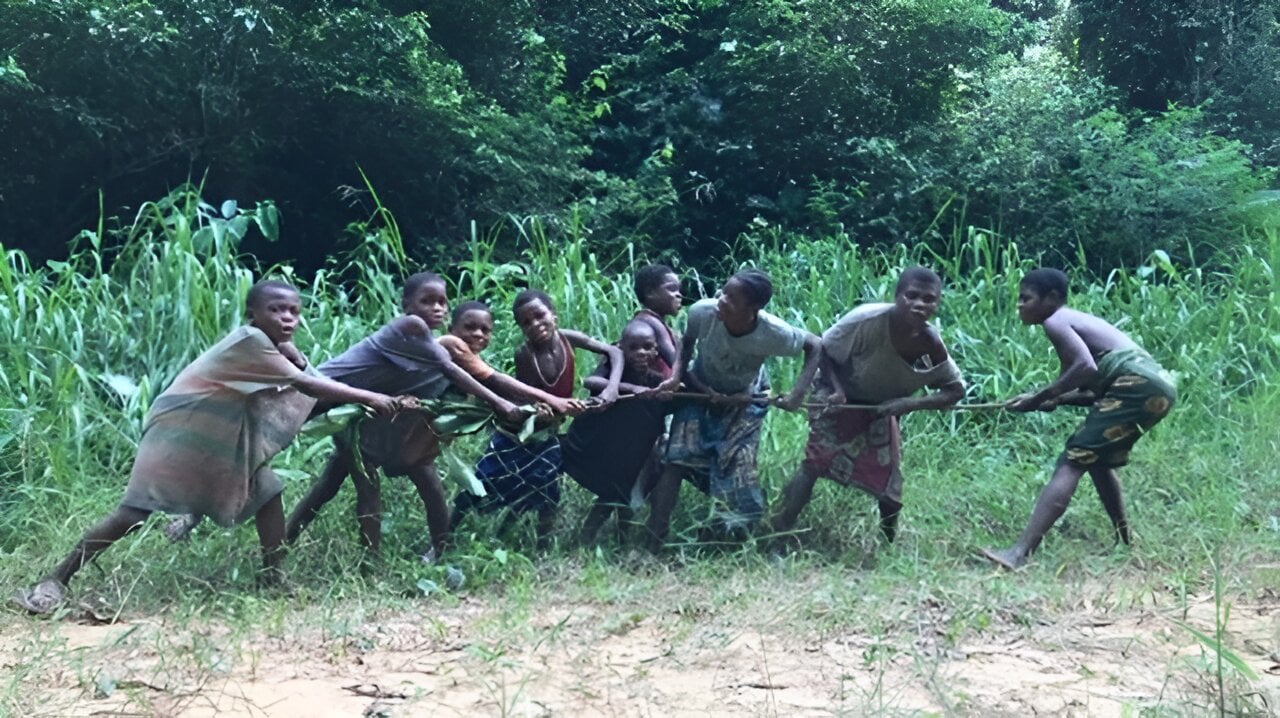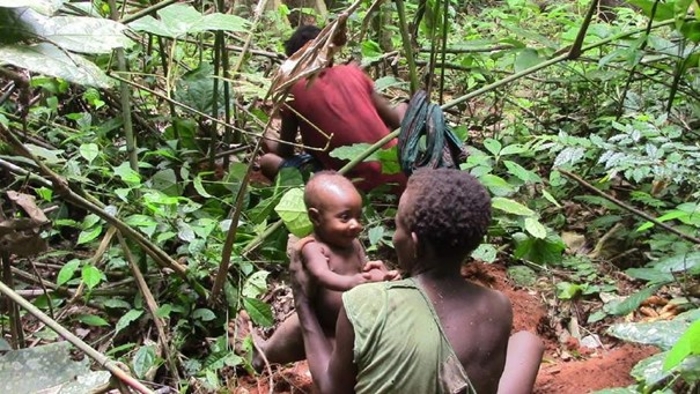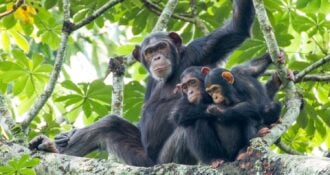
Music is universal in all human cultures, but why? New Leakey Foundation-supported research explores the evolutionary function of music and singing. The study focuses on women from the Mbendjele BaYaka, a hunter-gatherer community in the Republic of the Congo with a strong musical tradition. This research offers intriguing insights into how music fosters social bonding and communication.
An international team of researchers led by cognitive behavioral ecologists Chirag Chittar and Karline Janmaat found that BaYaka women foraging together for tubers were more likely to sing in large groups of strangers and less likely to sing in large groups of individuals they were close with. The research was part of a longitudinal study spanning two years, and the team’s findings have now been published in the scientific journal Frontiers in Psychology.
For the first time, this research group tested several hypotheses on music simultaneously in a modern foraging society during their daily search for tubers – their staple food.
Origins of music
Music has always been an evolutionary puzzle as the links to improving fitness in humans are not seemingly direct, yet it is prevalent across all human societies and performed among all age groups. The researchers decided to test some of the hypotheses that could explain the role of music in a social or group context, in the context of predation, and in a parent-infant context.
The researchers’ primary hypothesis was the “credible signaling hypothesis,” which is split into two parts: the coalition signaling hypothesis and the predation hypothesis. The coalition signaling hypothesis suggests that music might have developed as a way to demonstrate group solidarity and a willingness to work together. On the other hand, the predation hypothesis proposes that music could serve as a warning against potential dangers, like predatory animals. Additionally, the study looked into how the physical act of touching, especially in parent-infant relationships, might influence the likelihood of singing.
To explore these different hypotheses, the researchers chose a community where music naturally plays a part in everyday activities, including foraging. The chosen society needed to show spontaneous music-making as a core aspect of their daily life. This led them to the Mbendjele BaYaka people in the Republic of Congo, who seamlessly integrate music into their regular foraging practices.
To understand why the BaYaka women sing while foraging, the researchers examined the likelihood of singing during these activities. These expeditions, crucial for gathering tubers – a staple food – provided an ideal setting to study the influence of various factors on singing. They looked at how well the women knew each other, the size of the foraging group, and whether the women were carrying babies, a common occurrence during these foraging trips.
Karline Janmaat and her former PhD student Haneul Jang conducted extensive observations. They followed the women closely during their foraging journeys in the rainforest, with the women’s permission, over extended periods. This approach allowed them to gather detailed data, including whether the women sang or not, the duration of infant-carrying during foraging, the composition of the groups while searching and digging for tubers, and the potential presence of dangerous animals.
Importance of singing in groups
Chirag Chittar, the lead author of the study, highlights the importance of group dynamics. “To understand what motivated the women to sing, we had to understand the group’s dynamics,” Chittar explains. He provides a glimpse into the BaYaka’s way of life: “The BaYaka are an egalitarian group who share food extensively and live in temporary forest camps with several kin and non-kin individuals including individuals they are not so familiar with.”
Chittar further details their daily activities, “The BaYaka forage for food such as fish, meat, tubers, and mushrooms daily in largely sex-specific but age-general foraging groups. However, they also engage in subsistence crop cultivation and trade. Almost every day, the women search for tubers, fish, and mushrooms while the men often hunt or climb trees to search for fruits and honey.”
They observed groups of women ranging from 5 to 20 individuals. To analyze the data effectively, they categorized it into 1,704 distinct tuber searching and digging bouts. Chittar explains, “This helped us to differentiate between behaviors associated with tuber foraging and behaviors that were not directly associated with foraging like walking between two tuber patches. The bouts are the unit for our research as all the variables are averaged on the level of bouts.”
They found that the women sang in 19% of their foraging trips. They also found that women carried infants in 19% of the foraging bouts.
The coalition signaling hypothesis, a key part of the credible hypothesis framework, suggests that music evolved as a signal of group strength and willingness to cooperate. The researchers tested this idea by examining how the size of foraging groups and the familiarity between individuals (measured by the dyadic association index) influenced singing.
Their findings were clear: “Our results reveal that the foraging women were more likely to sing in large groups of less familiar individuals and less likely to sing in large groups of more familiar individuals,” supporting the coalition signaling hypothesis. The study further illuminates the role of music in the BaYaka community: “Formation of highly cooperative alliances is essential for the survival of the BaYaka who live in ever-changing precarious environments… Music can act as an ice-breaker to gauge the skills or even encourage the enthusiasm of strangers as initiative is highly valued… Trust is essential for this society to thrive… music can help in mitigating conflict and encouraging cooperation with individuals the focal individuals are socially less close to.”
Embed from Getty ImagesLack of evidence for the predation deterrence sub-hypothesis
The study also hypothesized that singing in large numbers could have originated to deter predation as the foraging individuals are under potential risk from large animals like elephants, gorillas, and leopards. “However, we found no evidence for the predation deterrence hypothesis.” said Janmaat, a behavioral ecologist from Leiden University and the University of Amsterdam, “This could be due to the possibility that the areas the women foraged in were already deprived of wild animals due to heavy bush meat trade. Future studies should, therefore, study the BaYaka deeper in the forest before these forests get emptied as well, and we will never be able to investigate this potential function of the singing behavior of foraging women.”

Possibility of touch playing a crucial role in infant-directed singing?
Though the study does not make direct connections between singing and parent-infant bonds, it shows evidence that touch triggers singing. The researchers found that women were more likely to sing when they held their infants or those of their relatives extensively. Several studies have discussed the role of parental singing in either increasing the bonds between parents and children or increasing the attention of parents toward their children. The results of this new study can be incorporated into the larger picture of parent-child interaction studies by emphasizing the importance of touch as part of a possible multimodal communication.
Music makes the forest happy
Janmaat said, “We know from their communication about music that the BaYaka sing to ‘please the forest.’ They say, ‘A happy forest provides us with more food.’ What the BaYaka dislike most is conflict, as they believe it would make the forest spirits angry. The women sing more frequently when they search for food in groups that are large and contain fewer friends, in which conflicts about food are more likely to arise. To me, our study reveals that these foragers appear to use music as a tool to avoid potential future conflict. How amazing is that?!”
“This study gives important empirical insights into the possible origins of music, a topic that for long had to be mere speculation,” says coauthor Henkjan Honing, professor of Music Cognition at the University of Amsterdam. “It made us decide to intensify our interdisciplinary collaboration and to further study the role of music with the BaYaka in a project aiming to unravel the human capacity for music. We are excited to announce our plans to return to this captivating society next year, where music appears to occupy a central role that transcends language.”
Informed oral consent was obtained before the implementation of the study, allowing Karline Janmaat and Haneul Jang to follow the women during their daily foraging trips. In addition, prior oral and written consent was taken for pictures and video footage from the BaYaka.
This article was created from material provided by Leiden University.
Chirag Rajendra Chittar et al, Music production and its role in coalition signaling during foraging contexts in a hunter-gatherer society, Frontiers in Psychology (2023). DOI: 10.3389/fpsyg.2023.1218394
Comments 1






This makes me wonder if the ancient rock art around the world may soon be interpretable with the help of these and more studies like it.
This study is a really nice start into the understanding of why humans use music and whether other animals may – like whales.
Thank-you